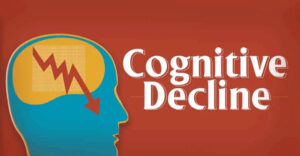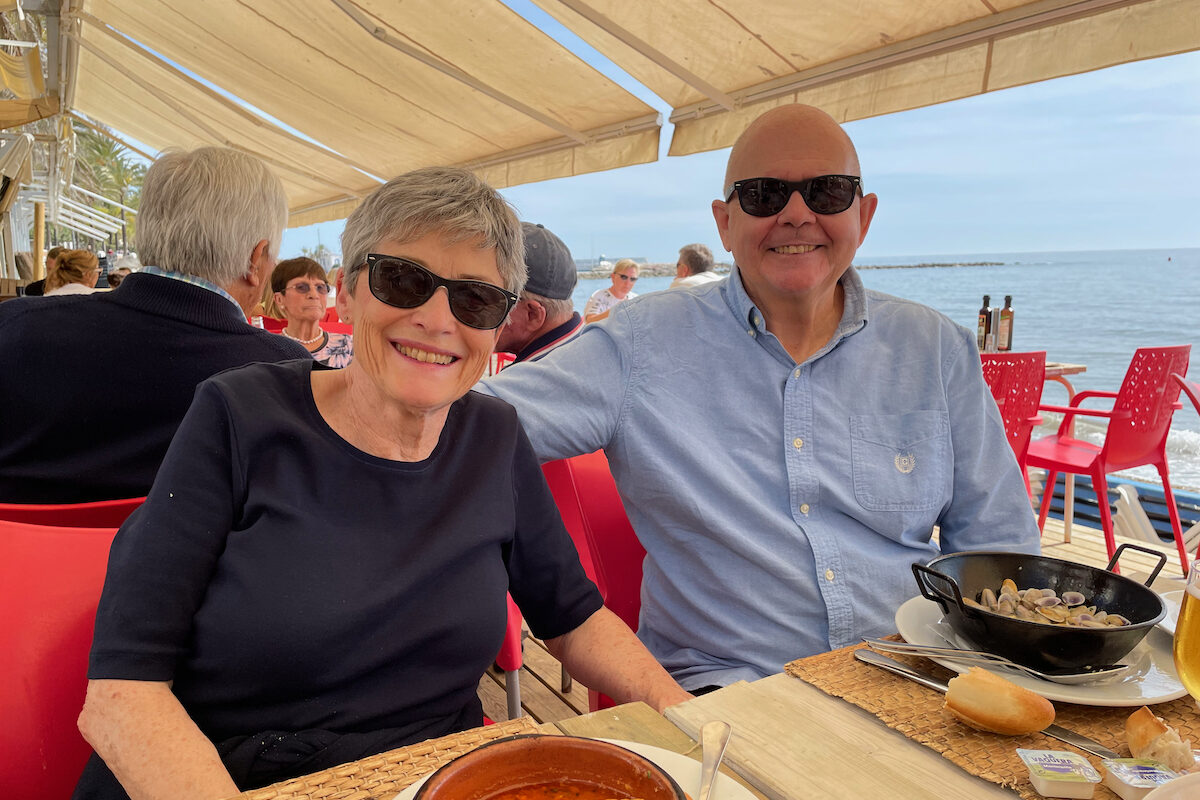In a couple of weeks, I will have been retired for 12 years. Those 12 years have been filled with many rich, interesting, and exciting events… along with one near devastating one. Those years also included an inordinate amount of time spent reading, thinking, and writing about the concept of retirement. It has been quite the ride.
Recently, I began to think… so, what have I learned about retirement in these past 12 years? Have I learned any “truths” or “commonalties” about retirement that are shared by all of us who have moved into this interesting stage of life?
I am not absolutely certain there are truths, or commonalties, but I have at least formed a bit of a theory of what aspects of life in retirement apply to everyone. In my view anyway… i.e. the world according to the Retiree. 🙂
 What Retirement Is, and What It Is Not
What Retirement Is, and What It Is Not
I suppose before I begin, I should spend a couple of minutes talking about what I consider to be “retirement”. Essentially it is the period of your life that follows the cessation of one’s paid work life, either by choice or by circumstances beyond one’s control. It is a time when your primary sources of income are pensions of a variety of sorts, and your savings.
In my definition, I would not include the unfortunate folks who were forced to give up work for health reasons or personal circumstances beyond their control and were never able to return to employment to any meaningful degree. I am thinking of those people who are forced to live on assistance programs like the Ontario Disability Support Program (ODSP), or on Ontario Works until they are eligible for the OAS. We still need to figure out a way to help this group have a less impoverished and fraught existence in their senior years.
So, this definition wouldn’t include the folks who aren’t in good-enough financial shape to allow them to stop working completely and need to work at least part-time to pay the bills; these folks might be considered to be “semi-retired”. But those folks can probably figure out where they fit in the greater retirement scheme of things without me interfering..
Moving on to my “truths” or “commonalities” observations; I view retirement as being divided into two distinct groupings, the personal or “people” side of things, and the logistical or “operational” aspects of retirement. Part One in this series deals with the “people” aspects.
The “People Truths” … According To the Retiree 🙂
From my perspective, the generally accepted retirement storyline says that retirement will be a time of the total cessation of work, and the embracing of a variety of alternate activities like travel, enjoying one’s grandchildren and other family members, developing new hobbies, volunteering, spending more time on a mixture of recreational and leisure activities, and simply sleeping in and relaxing – the never-ending weekend!
That all sounds good… except for the people who don’t want to stop working entirely, aren’t really that keen on travelling too far from home, don’t want to spend their time helping to raise a second generation of children after they’ve already put in lots of time on their own, don’t do hobbies, either have no interest in volunteering or aren’t able to find something that interests them locally, aren’t inclined to participate in recreational and leisure activities, or don’t want to spend the rest of their life just bumming around the house relaxing.
The retirement myth is probably just that, a myth. Perhaps no all-encompassing vision of what it is all about exists… yet. 🙂
So, let me throw out some ideas as to what I think are the big picture… dare I say all-encompassing … attributes of retirement that impact all retirees.
It’s A Very Individual Experience
First and foremost, I see retirement as a very individual experience – even amongst couples. I think we all at some level, even though we don’t articulate it even to ourselves, look upon retirement as the phase of life where you get to mostly focus on your personal wants and needs, explore interests that you’ve had little or no chance to investigate prior, and just generally attempt to make yourself feel happy and fulfilled.
And of course, what interests us, or makes us happy and fulfilled, and how we achieve that will be at the very least, slightly different for absolutely everyone. What makes you happy will assuredly be different than what makes me happy.
It’s a bit of a “it’s mostly all about me” phase.
It’s About Having and Making Choices … Hopefully!
Secondly, I see retirement as a time of having the luxury to make “choices”, that you may not have had in your working life. At least I hope you have gotten yourself into a position where your financial situation, health, family responsibilities, etc. will allow you to have and make choices.
I have two friends, who, although they have reached retirement age and are financially secure, have “chosen” to continue working full-time well past the age of 65. But those two individuals chose to do that. They were not forced to do so. I “chose” to retire at age 59, again, because of being in a position that allowed me to do that. Which of those examples of choices being made were right and which ones were wrong? Well, they were all right of course, because that’s what worked for us as individuals.
There really are no right or wrong choices when you are in control of your own decision-making process. I always find myself a little perplexed that people don’t travel as much as the Love-goddess and I do because there is never a better time to do it than in retirement. But some people are just homebodies and that’s what works for them… à chacun son gout.
 Couples May Each Have Different Ideas
Couples May Each Have Different Ideas
And speaking about the individual nature of retirement and its ability to provide choices for individuals, this also extends to couples. Couples may not really find out what their partner’s thinks retirement is going to be all about until they are immersed in it.
This is where my “it’s all about me” sentiment gets murky. Our loved ones often have other ideas about what they think we should be doing.
For those of you in relationships where you both were working at home during the pandemic, remember how much “fun” that was. Sitting there, staring at one another, dealing with family issues and one another’s idiosyncrasies all while trying to put in a full day’s work. 🙂
The good news is that that experience may well have prepared you both for a shared retirement together. More than ever before, in retirement, the day-to-day aspects of spending most of your time together can become a full time “work in progress”.
So, there is a lot of together time during retirement. That is not to say it is either good or bad, it’s just that it will be different than whatever you were doing prior to retirement… the pandemic, notwithstanding. You simply need to be prepared for it and think through how you are going to manage it. Too much “together time” can rub some people the wrong way.
In some relationships, differences of opinions around how to approach retirement may even prove to be problematic and cause stress. An example – one member of the relationship is keen on spending a great deal of their time helping with the grandchildren, and the second partner only wants to do it in the most limited of ways. Negotiations ensue.
Because individuals in a relationship can see things differently, it is ultra-important that couples work through these differences in a thoughtful, collaborative, nonconfrontational manner. This is important even if they weren’t doing that with differences during their working lives.
Probably couples who claim that they have the same ideas about how to spend their retirement can be found. And maybe they do share the same perspectives. But is that in fact the case or is it a situation where one party is suppressing their interests and acquiescing to their partner’s? Only they will know for sure.
We were fortunate as a couple in that we did not retire at the same time. The Love-goddess continued to work for three more years after I retired, and quite honestly that provided both of us with a very smooth transition. She got to continue doing her thing, but also was aware of what retirement life looked like for me, so we were both generally well prepared when we were finally home together all the time.
If I had one suggestion to make to couples, who will ultimately be spending their retirement together, is that, if you are able to, retire at different times.
Cognitive Decline Will Impact Us All
My saying that cognitive decline will impact all of us may well be questioned as an overstatement by some, and I am okay with that. But I do think it’s fair to say that everyone will be impacted to some degree. I am pretty sure it is safe to say that all of us know some older folks who demonstrate very different levels of cognitive ability.
So yes, I am sticking to the notion that we will all be declining cognitively, but it certainly will be to varying degrees. Hopefully, yours will be to a lesser degree. Let me throw out a couple of examples that probably everyone has experienced.
Who amongst you has not walked into another room, and can’t remember why they were there? There is actually a name for that, and it is called the “doorway effect. You can read about it this Wikipedia post.
https://en.wikipedia.org/wiki/Doorway_effect
Or what about forgetting factual information? My favourite amongst that Pandora’s box of delights is forgetting words for things. I’m not sure where I heard it first, but I have frequently reused the expression “the nouns are the first to go.” And it’s true, usually the word you’re searching for, like a person’s name or the name of an object, is a noun.
As a BBC article from The MIT Reader suggests:
“The most troublesome words, researchers have found, are proper nouns and the names of objects. This retrieval inability can last anywhere from a split second to minutes or even hours, and they can be exasperating.”
If you are interested in reading more about forgetfulness in aging, check out both the BBC piece and this article from the US agency, the National Institute on Aging. The National Institute article has some excellent tips on how to deal with forgetfulness.
So, cognitive decline is ultimately something we all must deal with. So, we have to collectively “get over it”.
I am also of the opinion that we can work at mitigating it. Perhaps even minimize or delay it. And certainly, you don’t want to speed up the decline process by failing to keep what you’ve got firing on all engines. 🙂 Let’s consider how.
Keeping the Synapses Firing
My review of a number of articles dealing with the impact of cognitive decline has led me to understand how important it is for we retirees to keep ourselves mentally engaged through our retirement years. In theory, it sounds like it should be easy enough to do. You now have all this free time on your hands so there’s plenty of time for reading, watching documentaries and other informative programming, attending lectures, giving lectures, taking courses, joining book or movie clubs, etc. All of these and others will keep your mind actively engaged. The caveat is that you have to make sure that you are out there doing it.
Being a couch potato is not really a winning strategy for retirement. When you get to the end of the race, I think it’s important to have as much of your faculties about you as you can.
Here are my general thoughts on how I… and potentially you… can “keep the synapses firing”.
If you can, it’s not a bad idea to have a major project that you can work on for as long as you wish to do so. Obviously, my project is this blog. The beauty of it is, I am under no restrictions about when to work on it or when not to work on it, other than, inherently, I have a lot of things on my mind that I would like to write about.
The Love-goddess is heavily involved with groups attempting to inform and lobby for the adoption of a Basic Income Guarantee for all Canadians. She’s doing that at the local, provincial, and federal levels. We are both busy people with interesting and engaging projects. The good thing is, we can simply walk away from it all anytime we want. It is one of those delightful “choices”.
Being actively socially engaged outside of your normal social circles will also help you to be more cognitively active. Many of the activities I will be talking about shortly when I speak about social engagement will certainly go a long way to help you keep your thinking vigorous.
If you are having difficulty coming up with an idea for a major project a significant social engagement, consider blogging about something that is of interest to you. Hey, if I can blog, so can you!
I suppose another way to stimulate your thinking is to not be afraid to do things that make you uncomfortable. I think that’s why you frequently read stories about someone who has decided to parachute to celebrate their 80th birthday. Now is the time to consider doing things you wouldn’t do during your working years because you were afraid of falling on your face metaphorically, or literally, I suppose. Retirement is a time when you don’t have to worry as much about what people think of what you say or get up to. 🙂
 Retirees Are at Risk of Becoming Socially Isolated
Retirees Are at Risk of Becoming Socially Isolated
Doing a quick Google search for the idea that retired people are at risk of being socially isolated, produces a myriad of results. Typically, the talk is about seniors being socially isolated; but that seems to refer to retired folks more typically in the second half or last third of the retirement portion of their lives. Retirement is not all just about the active, hopefully fun filled first 10 or 20 years. It is also about the potentially unpleasant last decade or so.
A Government of Canada report informs us that:
“Social isolation among seniors can be a result of several factors. Many seniors experience physical changes (such as sickness or disability) and life changes (such as the loss of a spouse), which can reduce the number of social contacts and limit activities. Social and environmental factors such as poverty and inadequate transportation, may also increase a senior’s chance of becoming socially isolated.
Social isolation can result from major events or from a combination of small events. How much these incidents affect people depends on the economic, personal, material and social resources that they have available to help them cope. Seniors can draw on their life experience in managing difficult times to help them with the challenges of aging. However, too many changes, especially one after another, can make it difficult to cope.”
The same report also goes on to Identify who is most vulnerable for social isolation:
“Social isolation happens when a senior’s social participation or social contact drops. About 30% of Canadian seniors are at risk of becoming socially isolated. Reports by Statistics Canada estimate that between 19% and 24% of Canadians over age 65 feel isolated from others and wish they could participate in more social activities.
The National Seniors Council’s Report on the Social Isolation of Seniors 2013–2014 states that the following factors may place seniors at risk of social isolation and loneliness:
• living alone
• being age 80 or older
• having compromised health status
• having multiple chronic health problems
• having no children or contact with family
• lacking access to transportation
• living with low income
• changing family structures
• being left behind by younger people migrating for work
• location of residence
• experiencing critical life transitions such as retirement, death of a spouse, or losing a driver’s license
• lacking awareness of or access to community services and programs
• being a caregiver.
Having a lower level of education and being born outside of Canada are also identified as risk factors for seniors’ social isolation.”
So, none of that sounds very good. But as you read this, you may be thinking I know that is ahead for me, but I am still in the fairly early stages of my retirement, so should I really be worried about social isolation at this point?
Well, yes. For starters, if you had read the entire quote above, you would have seen that separate “Reports by Statistics Canada estimate that 19% and 24% of Canadians over age 65 feel isolated from others and wish they could participate in more social activities.” It can happen much quicker than we think.
My personal thought on this matter is, yes, we should be thinking about the potential for social isolation no matter what stage of retirement we are in. We should be monitoring our own social activities very closely in retirement, and we should always be watching for warning signs.
For example, am I starting to tighten my social circle to my most favourite companions? Am I turning down invitations to social activities? Are my children getting too busy with their own lives that they don’t have as much time to include me in their lives? Have I decided I don’t have enough time to participate in a book club anymore?
Work at Being Socially Engaged
So how do you ensure that your show social life remains active and engaging? You work at it, that’s how.
If you think about it, a great deal of your social interaction disappears when you retire. Instead of being at a workplace interacting with people all day long, you are at home interacting with far fewer people.
There can be a lot of alone time in retirement if you aren’t actively engaging with other folks. This has the potential to lead to loneliness and depression if you’re not vigilant. So how do you go about engaging socially with new people if your own circle of friends is a pretty small one? Here are some ways.
 Volunteering -. One of the easiest ways to provide yourself with social interaction is to volunteer… Especially in situations where you are required to engage with other volunteers, and/or with people whom you are helping or servicing.
Volunteering -. One of the easiest ways to provide yourself with social interaction is to volunteer… Especially in situations where you are required to engage with other volunteers, and/or with people whom you are helping or servicing.
Join a Group or a Club – If you can’t think of anything in which you might like to be involved, then look up some local agencies that are offering activities for retired folks and see if they have anything that might spark an interest for you.
Take a Class or a Course – This is one of those double benefit activities. You get to sharpen your cognitive activity as previously mentioned, but it also puts you actively engaged with other people.
Become an Activist – Is there a particular issue or cause about which you have always been interested, but have not had the time to get involved? Retirement is the time to do it.
Get a Part-time Job – You may not even need a job, but doing something on a part-time basis, will get you out and about and interacting with people. And, you get to pick up a few extra dollars by doing so. 🙂
There you have it, my take on the human “truths” or commonalties involved in retirement – at this point anyway. Next week I may have some other “truths” to report as I figure them out.




